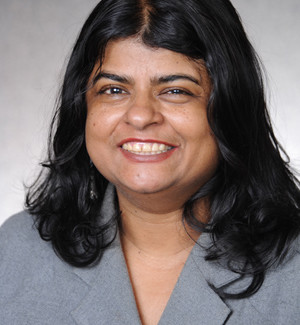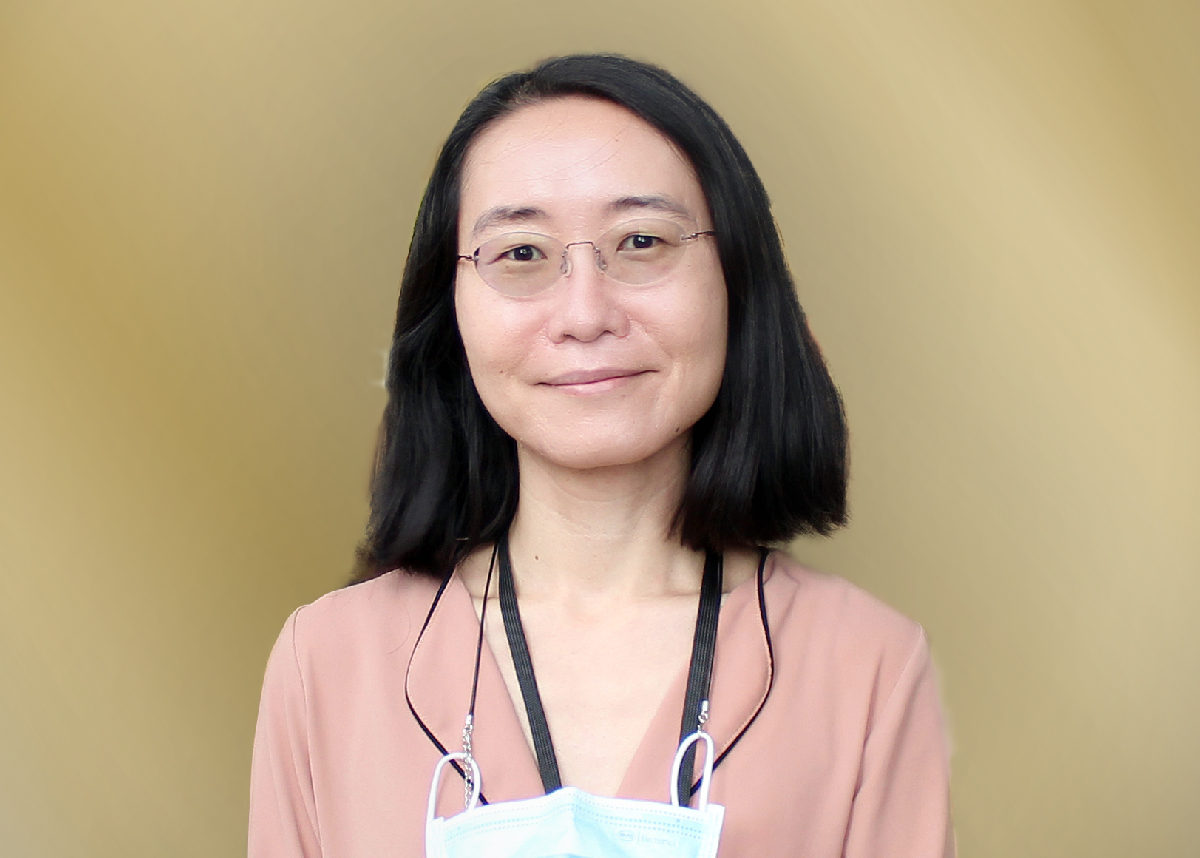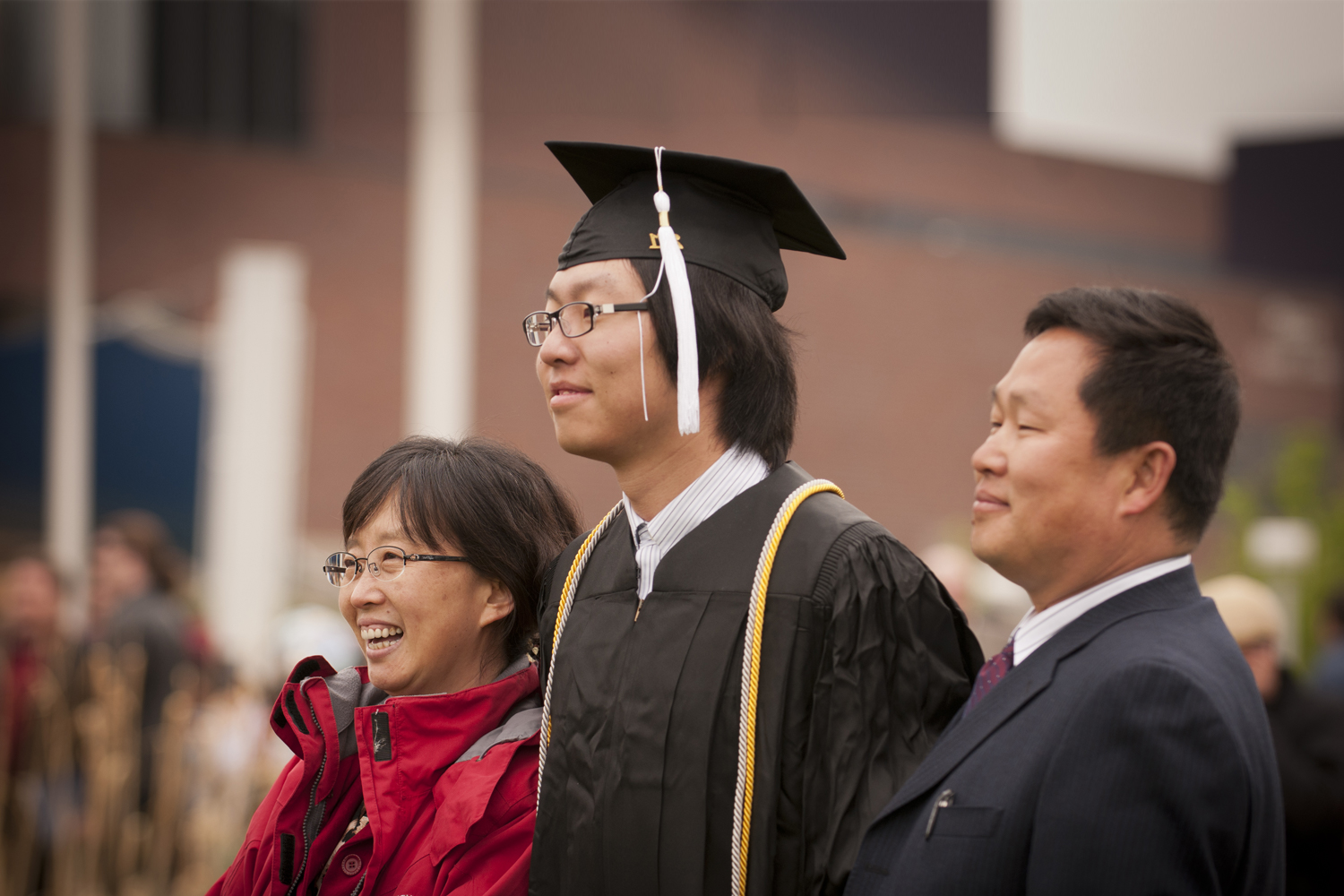Faculty Interview – Supriya Karudapuram

-
Place of birth: Chennai, formerly Madras, India
-
Chinese zodiac: Dragon
-
Greek zodiac: Libra
-
Favorite Quote: “You can chain me, you can torture me, you can even destroy this body, but you will never imprison my mind.”—Gandhi
-
Favorite Book: “Portrait of Dorian Gray” by Oscar Wilde
-
Favorite musicians: R.E.M., Karmacy, M.I.A
-
Favorite film: Slumdog Millionnaire
-
Hobbies: reading, writing, painting, traveling, camping, and people watching. I also like watching sports such as baseball, football, basketball, and tennis.
-
The best experience of my life: Spending time with my two wonderful children who are back in the U.S.
Q: Since you have already been in Beijing for a while, how do you feel about the city? About the new teaching life in ICB?
A: You could not find a more excited person!! I have been teaching about globalization and cultural differences particularly with respect to India and China for some 12 years now. To be in Beijing and see these abstractions come to realization is indeed being part of a dream. I will say more about the tensions that surround globalization later. Suffice it to say that I feel honored to be part of ICB. I have met so many interesting people and feel lucky to be part of such a community of kindred spirits.
Q: How do you engage students in communication during class, particularly in a course for non-major students?
A: The key is to motivate them to take pride in their own tremendous capacities to communicate. I encourage my students to be active, agents if you will, rather than passive subjects. While it is a curve of sorts, I am confident that I am getting there.
Q: What do you think are the most important attributes (top three attributes) of a professor who is teaching in the intercultural context?
A: I have taught and researched intercultural communication for the entirety of my graduate school years and subsequent to that my life as an assistant professor and associate professor. Sensitivity, empathy, and cultural literacy/competence are certainly three attributes that come to mind.
Q: You had a lot of study and working experiences in several famous universities in the United States. How do your experiences there compare to a Chinese university? What differences you have found between the American and Chinese campus?
A: American students are goal and task-oriented as are American professors. Chinese students seem very relational. They talk a lot amongst themselves which demonstrates that they are engaged with one another and care about each other’s sensibilities. Beyond that I find some patterns that are intriguing. Let me elaborate on my observations because I do not want to make simplistic and essentialist statements about different cultures. I taught at a private Catholic university as an assistant professor. Students were go-getters, driven by the fact that their education was not cheap. They had high expectations and would not settle for anything less than an A. They kept me on my toes! I won an Outstanding New Teacher Award and therefore felt I was doing something right. J Then I taught at a public university where I earned tenure. Students worked 2-3 jobs, some had families, all of this while doing everything that was humanly possible to get a degree so that they could advance in their careers. Ironically the students at this university were like students at ICB, deferential. Yet they needed me to assign them many tasks, perhaps an extension of the culture of productivity that has been so instrumental in shaping them. Across the board my expectations remain consistent, that students gain a voice and become eloquent communicators across vast expanses of difference.
Q: From your books and published articles, it seems that you are very attracted by Asian culture. And you are teaching some communication courses about diversity now. What is culture diversity in your mind? And how do you express those culture similarities and differences in class?
A: Not a day goes by when I do not emphasize difference and diversity. A world renowned postcolonial scholar makes a distinction between cultural difference and diversity. I am exercising interpretive license. Cultural differences is what we inherit, it is the air we breathe. Cultural diversity is what we transmit. It is the spaces we construct around this air. In other words, embracing and celebrating cultural differences along the political axis of identity such as race, class, gender, sexuality, nationhood, religion, and language, age, to name a few is the project of cultural diversity. In my class on citizenship and social justice students are currently in the process of interviewing different ways to be an effective citizen in Beijing which will lead to a project on global citizenship. In my diversity class students are interviewing members of different cultures/countries. This is a very exciting time for me and I hope for my students as well.
Q: What one thing do you want your students to take away from their educational experience?
A: Speak, speak, speak!
Q: What is your current research agenda? Have you involved your teaching experience at ICB in your research?
A: Yes, very much so. I am conducting a research project on the influence of globalization on youth identity from a postcolonial feminist perspective. Is it pressure or pleasure? That is my research question. My students filled out an inventory of the signs and symbols of Westernization in their lives and the information is valuable. I also asked them to convey their personal impressions and the impressions of their families. The answers are a treasure-trove of insights.
Q: What does this practical experience in China provide for you in your later research? How does it benefit your perspectives of Asian culture and communication theory?
A: I am a great believer in the power of India and China to bring a transformative energy to the globe. I feel we can extract key ideas such as global guangxie and karma if only in a sense of political consequence. Both India and China are in the midst of some amazing transformations. Yet there are cautionary lessons to be learned in terms of poverty, illiteracy,disease, violence, and environmental degradation. If we can harness communication between these two countries through our students, I am confident we can create global spaces of equity and equilibrium.
UPDATES
International College Beijing
-

Zoom Meetings & Guidance for ICB Students Coming to Denver
Nov 2, 2021For ICB students on the CU Denver campus, Mo collaborates closely with the College of Liberal Arts and Sciences academic advisors to help students with course options and to find employment through the Curricular Practical Training (CPT) program.Full story -

Greetings from Jingxuan “Jasmine” Mo
Oct 21, 2021"Welcome, ICB Students! At CU Denver, you’ll receive a world-class education and the unique experience of studying and living in the heart of downtown Denver, adjacent to the nearby scenic Rocky Mountains. I hope you will enjoy and benefit from the education and community experience here to its fullest. And remember, we’re here to assist and support you!"Full story -

Play Ball! ICB Students Cheer for the Colorado Rockies
Oct 18, 2021ICB students in Denver cheered one of their new favorite baseball teams, the Colorado Rockies, at Coors Field. The ICB students joined fellow classmates from around the world for this international student event, one of many free activities organized for students by the Office of International Affairs.Full story -






